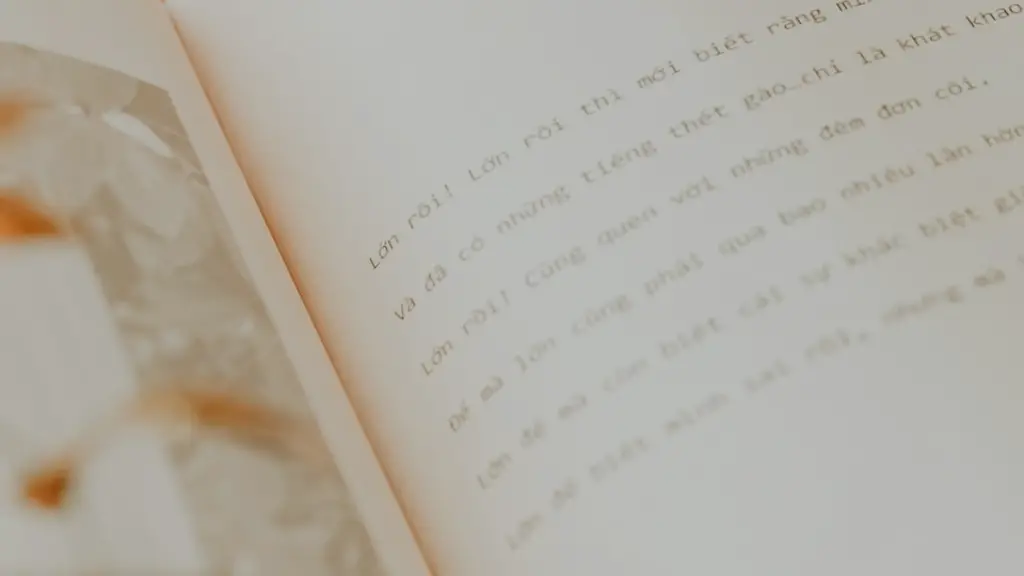Me Too is a global movement against sexual harassment and assault, originally founded in 2006 by civil rights activist Tarana Burke. Rupi Kaur, an Indian-Canadian poet, writer, performer, and artist, has been a vocal and powerful advocate for the Me Too movement specifically. She regularly writes about sexual violence and its consequences, urging victims to speak out regardless of possible backlash. Kaur’s work gives a platform to survivors of sexual assault and a place for them to feel heard, supported and validated.
Kaur showing her advocacy for the Me Too movement through her poetry is key, as she canvases a wide audience. The nature of her art reaches a much broader audience, especially young people, many of whom may not feel comfortable expressing themselves within a more structured conversation. The fact that she advocates for Me Too through her poetry, which is structured and written in a different way, gives these victims a platform to be heard.
Kaur also — in her reported talks and performances — adds a relatable quality to her words that creates empathy and understanding between her and her audience. It is an emotional process of bringing the most difficult of experiences to life, one that helps to create an even deeper understanding. It allows them to identify with her experiences and helps to express her belief that being a survivor is normal and nothing to be ashamed about.
Furthermore, Kaur does not limit her advocacy for the Me Too movement to her words alone. Additionally, she has used her artwork to bring attention to the movement. She uses her artwork to make the movement more visible, creating an image of the movement that goes beyond her words. Additionally, her artwork helps to make a statement while also providing an emotional connection to the pieces, which can help to spread understanding and to open up conversations with broader audiences.
In an effort to reach more people, Kaur also makes an effort to make her movements accessible through her books, podcasts, and other forms of sharing her work. She provides an outlet for those who are not able to physically attend her talks or performances, allowing them to still get a meaningful message from her advocacy.
Kaur is a true believer that everyone has the power to make a difference and to change their own stories, regardless if they are a survivor or not. She stands firm that everyone has an obligation to help make the world a better place for all survivors, whether through awareness or conversation. Her work in the #MeToo movement has and continues to inspire people from all walks of life to use their voices and to never be afraid to speak out.
Creating a Safe Space to Talk
Rupi Kaur’s advocacy for the Me Too movement creates not just visibility and understanding, but also a safe space to talk. As a poet and artist, Kaur has been able to tackle difficult topics in a way that allows individuals to feel comfortable, creating an environment where any individual can speak freely and without judgement. This can be particularly beneficial for victims of sexual violence or abuse, who often feel like they are not able to speak up, or that they will not be heard if they do. Kaur’s advocacy in the Me Too movement is able to create a place for individuals to talk and discuss their experiences, even if anonymously.
Beyond simply creating a safe space, Kaur also promotes self-assuredness through her advocacy, urging victims to stand up for themselves and for their voices to be heard. She does this to not only empower survivors, but also to create awareness. Often when speaking out, survivors can face backlash, not just from those that perpetrated their assault, but from the public as well. Kaur’s work highlights the importance of being heard, no matter how much unwanted attention it may draw.
Kaur also emphasizes the idea that it is not the victim’s fault, and that standing up for yourself is the only way to fight the power structure that perpetuates sexual assault and harassment. She encourages victims to speak out and to use their voices to cry out against injustice, even if it means vocalizing experiences they would rather not talk about.
Furthermore, her advocacy and her poetry help to bridge the gap between victims and allies. Her work educates influential people on the plight of victims, as well as provides victims with inspiration and confirmation that they are not alone.
The Power of the Arts
The power of the arts cannot be overstated when it comes to Kaur’s advocacy for the Me Too movement. By conveying her message through her art, she has been able to spread awareness and to create versatility in the change she hopes to bring about. Victims and allies alike can relate to art in a way that allows for deeper understanding, as it helps to turn an experience that is often intangible into something tangible.
Kaur’s art also serves as an outlet for grounding, as well as a way to empower individuals to express themselves and their experiences without fear. It helps to create a sense of ease, especially for those that are just beginning to talk about their experiences. Painting, creating collage, and writing poetry are all forms of the arts that allow victims to express themselves without directly addressing their trauma.
Kaur also uses her poetry to tackle serious topics, cultivating an understanding of the gravity of sexual violence and its consequences. Kaur’s work is deeply emotive and often speaks of experiences that many of us can relate to. It serves as a call to action, getting people, even those who are not already involved in the movement, to take a stand against sexual assault and harassment.
The power of the arts is also evident in the work of those that have been involved in the movement for far longer than Kaur has. The public discourse about sexual violence and abuse has seen a massive increase since the Me Too movement began. Victims have been advocating, speaking out, and using the arts as a platform since long before it became a hashtag. Kaur’s advocacy has only helped to solidify the movement, bringing attention to the complexities of sexual violence and the need to create a lasting change.
From the Web to the Streets
The Me Too movement has experienced an immense success since its foundation in 2006, and Kaur has been at the center of its progression. What started off as an anonymous hashtag for victims to relate their experiences has become an international sensation. This success can largely be attributed to how the conversation has spread to the Web, with many people taking the discussion and creating their own versions of the hashtag. This brought an enormous amount of online discourse, making it easier for victims to speak out, even anonymously.
Kaur’s advocacy has also taken to the streets, as many activists have met up in solidarity and protested against sexual assault and harassment. These protests are often rally points and start points for larger conversations, as well as a way to create a sense of comradery and openness. They highlight the power of collective action, showing the world that these survivors — supported by those who empathize — cannot be silenced by fear or intimidation.
Kaur has also been a driving force in using social media to raise awareness, encouraging people to talk openly about their experiences and supporting those who do. Many of the victims find comfort in being able to express how they feel. Kaur’s support for survivors helps them to find strength, courage, and self-assurance even in the face of stigmatization.
Kaur has been a strong advocate for the Me Too movement from its inception, and her activism is evident in her words and her actions. Her advocacy encourages victims to find the strength to speak out, to create a safe space to talk, and to use their voices to stand up against sexual assault and harassment. Her work speaks directly to the millions of victims, creating an atmosphere of hope and inspiration through her poetry, art and advocacy.
The Lasting Legacy
As a result of Kaur’s advocacy and dedication, the movement has enjoyed immense success, with people all over the world speaking out against sexual violence. Kaur’s words and artwork have resonated with many, inspiring them to reclaim their voices and stand strong in the face of adversity. Her lasting legacy has been to bring the Me Too movement to the forefront and to encourage victims to share their stories.
This advocacy is reflected in the increased public discourse around sexual assault and harassment. Kaur’s work has been instrumental in starting conversations and breaking taboos about speaking out about these experiences. This new discourse encourages conversations not just within social circles, but also among people in positions of power: politicians, employers, and largely influential people.
Kaur has also used her advocacy to push for reform and greater accountability. She has called on those in positions of power, particularly those in the entertainment industry, to establish greater justice for victims, both through legislation and audit. This is especially needed to ensure that those in power are held responsible for their actions and so that victims are able to have their voices heard.
At the same time, Kaur also advocates for the importance of telling stories and speaking out, not just through writing, but also through other forms of art. Through her books, podcasts, and other initiatives, she has spread her message even further and encouraged others to use their own circles to promote advocacy, acceptance, and understanding – something that all Me Too supporters should strive towards.
Tools to Combat Injustice
Kaur’s advocacy has not been limited to her words and her art, but has also been seen in her support for campaigns such as #SilenceIsNotConsent and #GoshRapeCulture. Such initiatives provide victims with tools, support and strength to speak out, as well as to challenge the status quo and combat systemic injustice.
Her advocacy breeds new hope for those who have suffered from sexual assault, as well as for those who are attempting to prevent it. She encourages all individuals to use their voice to spread the message of justice and to combat the stigma associated with speaking up. This message of courage, resilience, and strength is particularly important when it comes to victims of sexual assault, who too often feel they cannot talk without fear of judgement or retribution.
Furthermore, her advocacy has brought attention to the importance of consent, specifically among children and adolescents. By educating them on the right to consent and the importance of respect, Kaur hopes to create an environment where young people feel safer, respect each other and make informed decisions about their bodies and their protection.
Kaur’s advocacy for the Me Too movement has not just inspired people to speak out, but also to take action. She encourages people to contact legislators, and to support organizations that champion victims’ rights and fight for justice. Her passion and dedication to creating lasting change and providing support to victims is a model that all of us, survivors and allies alike, can look up to.





